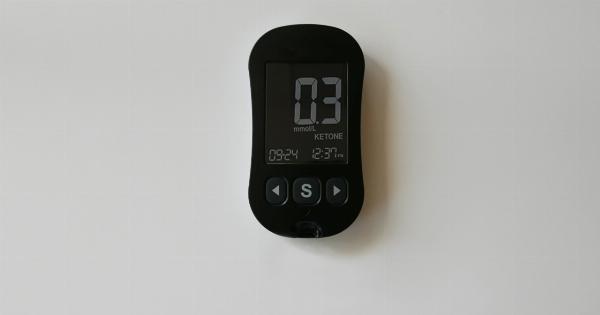High blood pressure, also known as hypertension, is a common health issue that affects millions of people worldwide. It is often referred to as the silent killer because it typically does not have any noticeable symptoms.
However, if left untreated, it can lead to serious health complications such as heart disease, stroke, and kidney problems. The good news is that there are several lifestyle changes that can help reduce blood pressure, and one of the most effective ways is through a healthy diet.
In this article, we will explore some diet tips that can help you lower your blood pressure naturally.
1. Increase your intake of fruits and vegetables
One of the easiest and most effective ways to lower your blood pressure is by increasing your intake of fruits and vegetables. These foods are loaded with essential vitamins, minerals, and antioxidants that help maintain healthy blood pressure levels.
They are also high in fiber, which can help improve heart health. Aim to include a variety of colorful fruits and vegetables in your meals and snacks every day.
2. Choose whole grains over refined grains
When it comes to grains, choose whole grains over refined grains. Whole grains contain all parts of the grain, including the bran, germ, and endosperm, which are packed with nutrients and fiber.
On the other hand, refined grains have had the bran and germ removed, stripping away most of the beneficial nutrients. Swap white rice, white bread, and pasta with options like brown rice, whole grain bread, and whole wheat pasta.
3. Cut down on sodium
Excess sodium intake is a leading cause of high blood pressure. Most processed and packaged foods are loaded with sodium, so it is important to read food labels carefully and choose low-sodium or sodium-free options whenever possible.
Opt for fresh or frozen fruits and vegetables instead of canned ones, as they tend to have added salt. Flavor your meals with herbs, spices, and other salt-free seasonings to reduce your sodium intake.
4. Increase potassium-rich foods
Potassium is a mineral that helps balance the sodium levels in your body, and an imbalance between the two can contribute to high blood pressure. Including potassium-rich foods in your diet can help lower blood pressure.
Some excellent sources of potassium include bananas, oranges, avocados, spinach, sweet potatoes, and tomatoes. Aim to incorporate these foods into your meals regularly.
5. Choose lean protein sources
While protein is an essential nutrient, certain types of protein can contribute to high blood pressure. Opt for lean protein sources such as skinless poultry, fish, legumes, and tofu.
These options are lower in saturated fat compared to red meat and processed meats, which can raise blood pressure levels.
6. Reduce your intake of saturated and trans fats
Saturated and trans fats are unhealthy fats that can raise your blood pressure and increase your risk of heart disease.
Limit your intake of foods high in saturated and trans fats, such as fatty meats, full-fat dairy products, fried foods, and commercially baked goods. Instead, choose healthier fats like avocados, nuts, seeds, and olive oil.
7. Limit alcohol consumption
Drinking excessive alcohol can raise your blood pressure. It is important to consume alcohol in moderation or, ideally, avoid it altogether.
If you do choose to drink, limit your intake to moderate levels, which is defined as up to one drink per day for women and up to two drinks per day for men.
8. Reduce your intake of added sugars
Consuming too much added sugar can contribute to weight gain and increase your risk of high blood pressure. Limit your intake of sugary drinks, desserts, and processed snacks.
Opt for natural sweeteners like honey or choose healthier alternatives like fresh fruits to satisfy your sweet cravings.
9. Be mindful of portion sizes
Controlling your portion sizes can help you maintain a healthy weight, which is important for managing blood pressure levels. Use smaller plates and bowls to trick your mind into feeling satisfied with smaller portions.
Chew your food slowly and savor each bite to help you feel full and prevent overeating.
10. Stay hydrated
Drinking an adequate amount of water throughout the day can help maintain healthy blood pressure levels. Dehydration can cause blood vessels to constrict, leading to an increase in blood pressure.
Aim to drink at least 8 glasses of water daily and more if you are physically active or live in a hot climate.
Conclusion
Your diet plays a crucial role in managing your blood pressure. By making simple changes to your eating habits and incorporating the aforementioned tips, you can naturally reduce your blood pressure and improve your overall health.
Combine these dietary changes with regular exercise, stress management, and regular check-ups with your healthcare provider for optimal blood pressure control.




























